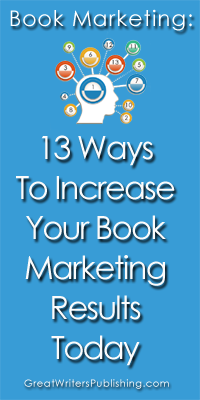Today I had the opportunity to speak with Robert Rausch, Ph D.
Dr. Rausch (widely known as 'The Energy Doctor') is the author of three books on the subject of personal and enterprise energy. His latest release, I Don't Dress Dead People – How To Live An Energized Life Without Burning Yourself Out, details 22 'Energy Connectors' that can help anyone learn to recognize serious, hidden energy drains, change interpersonal relationships, focus personal energy and develop new outlooks on work.
Widely recognized as America's leading authority on personal and enterprise energy, Dr. Rausch has made it his life's work to bring our personal energy crisis to an end by teaching companies and individuals to effectively manage their internal energy resources.
Robert Rausch, Ph D., is a consultant, a renowned international speaker and a workshop leader. He is a Registered Corporate Coach and a Certified Executive Coach. He has worked with executives and corporations all over the world, including Merck, Pfizer Pharmaceuticals, Kimberly-Clark, New York Life, Cephalon Corporation, U.S. Steel, Lone Star Technologies, Frymaster International, Preferred Health Systems of Wichita and the James Hardie Corporation.
1.When you talk about ENERGY what exactly do you mean?
Energy is the internal fuel that drives the spiritual, mental, emotional, and physical aspects of our being to create a productive life. OR - Energy is the emotional tenacity that releases immense inner resources, allowing the hardest job to be done.
2.How did you get interested in the concept of energy?
I became frustrated with the theories of psychology. They were not helping my clients get better. One evening I had an epiphany that my clients didn’t have the energy to do what I asked of them. I shifted my approach to asking people how they used their mental, emotional and physical energy. A couple years after that I began to work in corporations as a executive coach working with individuals and leadership teams.
3.Have you found a way to best illustrate energy when you are talking to an individual or a team?
Yes, I use the illustration of a car. We all know that a car has an engine and that it takes fuel to drive that engine. Human energy is the fuel that drives our engine, which is composed of mental, emotional, and physical characteristics.
4.You mention mental, emotional and physical energy are there other categories people need to be aware of?
We use energy five different ways; spiritually, mentally, emotionally, physically, and there is an interactional energy.
5.What’s the difference in the five areas of energy?
Spiritual energy is purpose or meaning. In a company spiritual energy would be their mission statement. It’s what the person stands for and the “why” for “what” they do.
6.What do people need to know about energy?
It’s important that people know the characteristics of energy and the three ways we manage personal energy. The three ways we manage energy is: defueling, refueling and threshold of energy.
Defueling and refueling is obvious except for the fact that most people defuel much more than the refuel. Every individual on the planet has a threshold of energy. The threshold is when you drain your energy to a very low place and the energy lights begin to blink – low on fuel. Each person has a predisposed behavior that happens every time they get low on energy. Some get depressed, some drink, some have affairs, some withdraw.
7.How does stress play into your concept of energy?
43% of all suffer adverse health effects due to stress and 80-90% of all visits to a primary care physician are due to stress related complaints or disorders. Stress has been linked to all the leading causes of death; heart disease, cancer, accidents and suicide. But stress is not the problem. Stress is the result of the problem. The problem is ineffective use of personal energy. Again, it’s like my car illustration. If you fail to put oil in your car you are going to stress the engine. If you fail to put gas in it you aren’t going anywhere. The same is true with energy. Failing to use it effectively when situations arise is the cause of stress. It’s not the event, it’s what people do with the event.
8.How does your approach to energy differ from others who have written on energy?
There are two major approaches to energy. The first is to focus on how to eat right, sleep right and exercise. It’s the physical body approach, which is important. On the other extreme is what I call the New Age approach. They deal with alternate types of spirituality. I’m right in the middle. My approach deals specifically with how an individual uses his or her energy when they are thinking and feeling. It’s more of a psychological approach to living an effective, energized life.
9.What would you suggest to a person who is low on energy?
The first think I would do would be to evaluate where my energy is going mentally, emotionally, and physically. Over a period of three days make a detailed list of how you use your energy. Second, I’d make another list of those things the refuel my energy. What do you like to do and who do you like to be with that energizes you? Then I would take one day at a time and focus on refueling my energy and deleting those things that uselessly drain energy.
10.You have written a couple books. Give us an idea of what’s in your latest book.
“I Don’t Dress Dead People” is a tribute to those insightful people who have passed along energy saving techniques to me. For example, Never park your car next to a nothing to lose car, and don’t let anyone live in your head rent free. There are 22 catchy but effective approaches to personal energy.
Contact:
Robert A Rausch, Ph. D
1Executive Energy Inc.
Phone: 770-367-7001
Web: www.GettingEnergyToWork.com
Email: DrBob@gettingenergytowork.com




